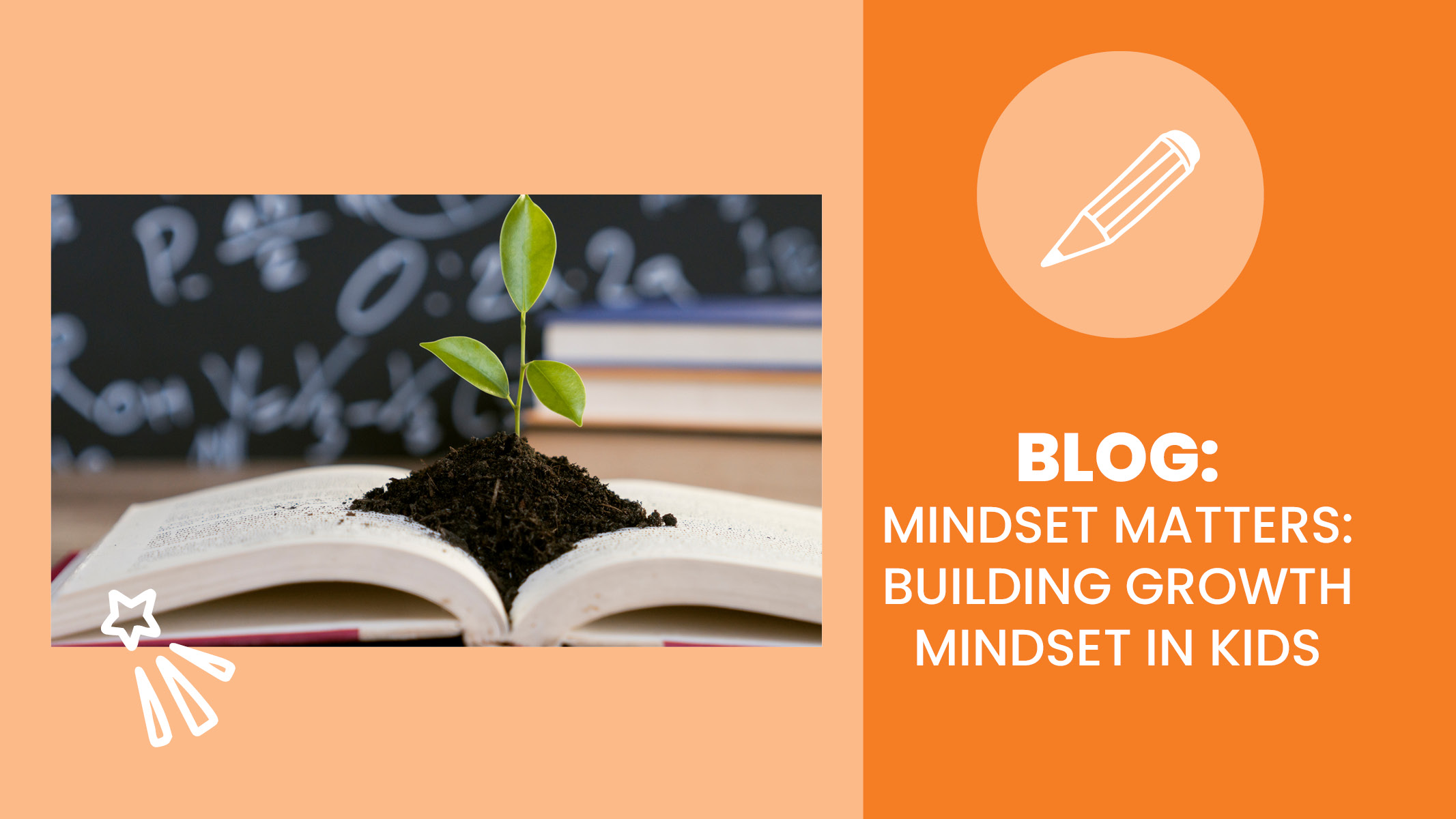We are all born with unique abilities – some people excel in certain areas while others shine in different ways. As we grow, we approach these differences with one of two mindsets: the fixed mindset or the growth mindset. With a fixed mindset, people believe their basic qualities and abilities are fixed at birth – experiencing setbacks and challenges means a lack of talent or ability. On the other hand, those with a growth mindset understand that abilities can be developed through effort, learning, and perseverance. For them, challenges are opportunities to grow, not barriers to success. When kids believe that their abilities can be developed through effort, perseverance, and learning, they’re more likely to take on challenges, overcome obstacles, and reach their full potential. Click here to learn more about the basics of the growth mindset.
Why Building a Growth Mindset is Important?
Building a growth mindset in kids is essential because it encourages resilience and fosters a love for learning. Children with a growth mindset are more likely to:
- Embrace challenges instead of avoiding them.
- Learn from mistakes and view failure as an opportunity for growth.
- Persevere through difficulties without giving up.
- Develop self-confidence in their ability to learn and improve over time.
Children with a growth mindset enjoy the experience of the challenge rather than the outcome. Helping your kids (and yourself) to adapt this mindset will encourage them to be much kinder to themselves when they approach new challenges. By cultivating a growth mindset, we set children up for long-term success not only in school but also in life. They are better prepared to face life’s challenges and remain motivated, regardless of setbacks.
How to Build a Growth Mindset in Kids
It’s important to remember that this mindset is not something that is achieved overnight. However, with consistent effort and encouragement, your child can develop a growth mindset. Here are some practical strategies to help build a growth mindset in kids:
Praise effort, not just the results: Instead of focusing on the outcome, praise the effort and hard work that your child puts into a task. For example, say “I’m proud of how hard you worked on that puzzle” rather than “You’re so smart!” This reinforces the idea that effort leads to improvement, which is central to a growth mindset.
Use positive language: The language we use can shape a child’s mindset. Instead of saying “You can’t do it,” try saying “You can’t do it yet.” This small change in phrasing reinforces the idea that skills and abilities can be developed over time with practice. It’s important that your child uses positive language with themselves too. To help with this, check out this guide on positive self-talk. When your kids can speak kindly to themselves, they are much more likely to keep that attitude and behavior up throughout the day.
Encourage persistence through challenges: Kids will face obstacles, but it’s important to guide them to focus on what they learnt from the experience. You can ask them: “What can I try differently next time?” This new way of thinking helps them understand that challenges are not just a part of life, but they are also a learning experience.
Provide opportunities for new experiences: Exposing children to different activities that require problem-solving and learning – such as puzzles, challenging games and hobbies that encourage trial and error – provides natural opportunities for children to practice resilience and grow their skills. Check out these expert strategies on how to encourage a problem-solving mindset to help build this foundation.
Encourage goal-setting: Another way to encourage growth mindsets is to set goals as a group or as a family. The goals can be big or small, but helping your kids achieve their goals gives them practice in approaching challenges with an open and flexible mindset. It teaches them to focus on progress rather than perfection. When kids achieve small, incremental goals, it helps build their confidence and motivates them by showing them that effort leads to results. This reinforces the idea that challenges are not obstacles to avoid, but as opportunities to learn and grow.
Building a growth mindset in children is not an overnight process, it requires patience. But the results are well worth the effort. By helping kids understand that their abilities can grow with time and effort, we empower them to approach challenges with confidence, learn from their experiences, and keep striving for success.
Ready for More? You Might Also Like:
Tips for Raising Independent Kids
Using Positive Self-Talk to Motivate Your Mood
Feelings and Emotions Chart


